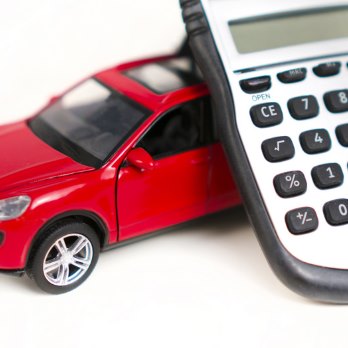Top 2025 Tips for Scoring Great Deals on Used Cars in the United States Through Repossession Auctions and Online Sales
Repossessed car auctions and online marketplaces often list used vehicles below market value. In 2025, knowing where to look and how to bid helps buyers find bargains. This article outlines practical tactics, key platforms, and checks to secure great used-car deals nationwide.

Grasping the Concept of Repossessed Car Auctions in the United States
Repossessed vehicles are those reclaimed by lenders after borrowers fail to meet loan obligations. These cars are usually auctioned off to recover outstanding debts and often come at prices lower than retail or private-sale levels. Because of this, repossessed car auctions represent a compelling opportunity for value-minded buyers.
- Who Are the Sellers? Financial institutions such as banks and credit unions dispose of repossessed vehicles through specialized online auction websites or traditional auction houses.
- Condition of Vehicles: The condition of auctioned cars can range from lightly used to models showing various degrees of wear or damage. Most auctions provide detailed condition reports, photographs, and history disclosures.
- Title Information: Generally, repossessed vehicles come with clear titles processed through the auction house or directly through lending organizations.
Utilizing Online Auction Platforms for Repossessed and Used Cars
The expansion of online car auctions in 2025 has revolutionized access to repossessed and wholesale vehicles by breaking down geographic limits and often eliminating the need for a dealer license.
- Platforms Open to Non-Dealer Buyers: Websites like Auto Auction Mall, AutoBidMaster, and A Better Bid allow consumers to engage in live bidding on repossessed and salvage vehicles without requiring dealer credentials.
- RideSafely Service: This dedicated site offers direct access to thousands of repossessed vehicles nationwide, featuring transparent title processing, comprehensive vehicle condition details, and bidding opportunities without needing a dealer license.
- Key Auction Houses: Major players like Copart and Insurance Auto Auctions (IAAI) lead the repossessed and salvage sectors. Although Copart generally mandates dealer licenses, brokers can facilitate bidding on behalf of consumers. Similarly, IAAI enables non-licensed participants to bid via broker services at a modest annual fee.
- Specialty Auction Platforms: Sites such as Cars & Bids and Capital Auto Auction target enthusiasts and buyers seeking niche vehicles like vintage models, rental cars, or those with minor damage, often providing clear histories and inspection reports.
Research and Preparation for Auction Participation
Proper preparation is essential to increase your chances of securing a great deal and minimizing unexpected expenses or risks.
- Vehicle Valuation Resources: Compare auction prices against current market values through trusted tools like Kelley Blue Book and Edmunds to establish realistic bidding limits that account for condition and additional costs.
- Checking Vehicle Histories: Use services such as the National Motor Vehicle Title Information System (NMVTIS), Carfax, or AutoCheck to verify title status, identify past accidents, salvage records, or odometer discrepancies.
- Examining Condition Reports: Many online platforms offer detailed vehicle disclosures and photos. When possible, attend preview events or inspections to evaluate vehicles in person.
- Documentation and Registration: To participate in auctions, you typically must register with valid identification (e.g., a U.S. driver’s license), provide security deposits, and meet payment deadlines. Preparing all required paperwork and payment methods ahead of time expedites the process.
Smart Bidding Techniques for Auctions
- Establish a Budget and Maximum Bid: Calculate your total spending limit, including estimated repair costs, fees, and transport expenses. Adhere firmly to your budget to avoid bidding too high.
- Watch Auction Flow: Placing bids near the end of an auction can help avoid inflated prices, but be ready for strong competition on in-demand vehicles.
- Account for Additional Costs: Besides your winning bid, consider buyer premiums, transaction fees (commonly ranging from about $100 to $300 or more), taxes, and shipping or pickup fees.
- Utilize Broker Services if Necessary: For auctions that require dealer licenses, trusted brokers can provide access to a broader inventory.
Additional Considerations and Helpful Resources
- Financing Availability: Some auctions and platforms provide financing options with varied terms, but conditions and rates differ widely. Always verify current details directly with the auction site or broker.
- Vehicle Delivery and Pickup: Plan for prompt receipt of your purchased vehicle. Many auctions offer logistics assistance or recommend reliable shipping companies.
- Inventory Variety: Auction inventories include a wide variety from compact cars, SUVs, luxury vehicles, fleet cars, to salvage titles, allowing buyers to find vehicles matching their needs and budgets.
Conclusion: Maximizing Your Used Car Opportunities in 2025
By combining comprehensive research, smart bidding strategies, and a solid understanding of the auction environment, buyers across the U.S. can uncover excellent deals on used cars through repossessed vehicle auctions and online sales in 2025. Leveraging reputable platforms such as RideSafely, Auto Auction Mall, and leading auction houses like Copart and IAAI, alongside valuation and vehicle history resources, empowers consumers to make informed choices and confidently navigate the auction process.
Disclaimer
Vehicle prices, availability, and auction fees differ by location, dealer policies, and current market conditions. Prospective buyers should verify all details directly with auction platforms or dealerships before participation. Financing terms, fees, and promotional offers are subject to change and may vary regionally; always consult the auction site or broker for the latest information.
Sources
- Comprehensive insights from an expert guide on repossessed cars and bank repossession auctions in the United States.
- Reviews and descriptions of top online car auction platforms available to consumers without dealer licenses in 2025.
- A detailed overview of various car auction types, bidding strategies, and preparation tips tailored to the U.S. automotive auction market.




